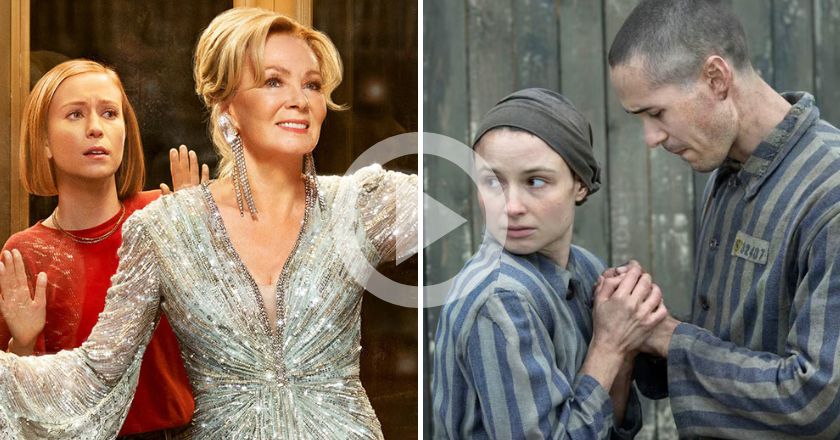The French Dispatch marks the tenth feature from filmmaker Wes Anderson, the writer-director whose signature artistic leanings and sensibilities have almost made the “Wes Anderson film” a genre of its own. If you’re one of the many who gravitate to the auteur’s work, Anderson’s star-studded The French Dispatch will likely be a joy to behold. For the uninitiated, or those less inclined, it may prove to be a tad too indulgent in comparison to some of his previous works.
The film, also known by its much longer title, The French Dispatch of the Liberty, Kansas Evening Sun, finds Anderson gleefully relishing in all his creative tendencies thanks to his carefully chosen style of narrative: An anthology. The base story is that of the French foreign bureau of fictional newspaper Liberty, Kansas Evening Sun, with its final issue coming together. Bill Murray plays editor Arthur Howitzer Jr., who is looking at various stories coming from his writers – each reporting from a different corner of the film’s fictional French town, “Ennui-sur-Blasé”. These stories provide the anthology strands: three primary segments, while we occasionally return to Howitzer as he looks over the articles.
Anderson has called the film a “love letter to journalists” – and it certainly shows. While these episodes are, of course, crammed with Anderson’s signature oddball characters and bizarro plot turns, it’s an overall tale about journalism and the experience of chasing a story. More than that, it’s a love letter to the type of press that is, arguably, of yesteryear, more removed from the clickbaity, bite-sized, clearly angled work too often coming from the fourth estate today. Anderson clearly has a romantic outlook for the profession, and considering the angle here is firmly within print, the lens is both nostalgic and bittersweet when looking from this era.
The three stories (there is also, by the way, a shorter Owen Wilson-led tangent introducing us to Ennui-sur-Blasé early on) come with the requisite sense of whimsy, goofiness and melancholy Anderson stories are known for. But, while they are certainly entertaining, these chapters almost serve better as short films. Anderson’s bigger picture does manage to come together thematically at the end, but the bow on the package doesn’t satisfy as it should, leaving The French Dispatch feeling like an impressive collection of Anderson works – as opposed to a great one-off film as a whole.
That being said, these tales are a pleasure to watch. Anderson’s love for picturesque sets and symmetrical composition is given an epic canvas on which to play. The creativity and sheer scale of Anderson’s artistry here is grand, and utterly pause-worthy as you attempt to appreciate the lovingly-crafted shots. The filmmaker has plenty of fun with all the tools at his disposal, changing aspect ratios, landing impressive long shots, and working in undeniably creative edits. There’s even an animated sequence. No denying it – The French Dispatch is an overall gorgeous production.
The picture also benefits from one hell of a cast, all nailing the filmmaker’s particular tone with eccentric performances of various sizes. Considering the line-up of talent, this would be quite the lengthy write-up if I were to describe which star plays what character and just how good they were in each role, so allow me to simply point the few that stood out to me in order to save us all some time. In “The Concrete Masterpiece”, Adrien Brody is fantastic, hilarious as art dealer Julien Cadazio, while Benicio del Toro and Léa Seydoux are wonderful in their prisoner-prison guard relationship of little words. “Revisions to a Manifesto”, which serves as an interesting imagining of the student protests that rocked France in 1968, has great turns from Frances McDormand and Timothée Chalamet in another unexpected relationship. And Jeffrey Wright offers some needed nuance and groundedness with his food journalist caught up in a kidnapping case.
The French Dispatch is Wes Anderson going full Wes Anderson. It’s a self-indulgent work, to be sure. This is, mind you, far from a criticism; more to say, if you’re a fan of the artist’s work, you’ll be in very safe hands as he gives himself free rein on a large scale. Funny? Often. Picturesque? Incredibly so. If only the narrative allowed for a more emotional connection to be made. The anthology proves too episodic, despite a number of inspired moments. The dramatic-engagement factor is missing, holding The French Dispatch back, slightly, from the heights of Anderson pictures such as The Grand Budapest Hotel and Moonrise Kingdom. Still, Anderson fans, you have a treat here.









